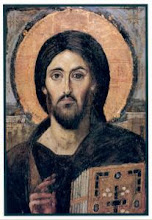Saturday, February 14, 2009
Indifference, the Refined Art of Exile
This past Sunday I preached a sermon on the hurtful nature of indifference. This particular sermon was a difficult one to preach, because not only did several folks in the congregation find it challenging, but so did the preacher! The question as well as the challenge is - as Christian's how can we remain indifferent to people who genuinely suffer? How can we turn our backs on people whose pain is only magnified by society's blatant abandonment? The political prisoner, the homeless refugee, starving families, the sick, destitute and abandoned; by ignoring their existence and looking the other way we exile them from our consciousness. The Jewish Holocaust survivor Elie Wiesel states it best when he says, "By denying their humanity, we betray our own."
Remaining indifferent to those who truly suffer in this world is nothing new to our time. Indifference is a cruel form of social marginalization. A Darwinian theorist might even justify that marginalization of those who are sick, needy or in desperate trouble is the "natural order of things." But for those who claim Christ as our Lord, we are called to usurp the "natural order of things."
First century Palestine was no different than any other age when it came to the outcast, socially marginalized and loathed. Actually it was probably worse since the Jewish law gave credibility to the exile and expulsion of those considered unclean. Leprosy most assuredly was one such death sentence to a life of normal social acceptance. It was an ancient curse that guaranteed a person of a life stripped of dignity, hope and any kind of value. This terrible disease caused grotesque disfigurement of the body. It was considered highly contagious, and those who contracted it were condemned to a life of exile, desperation and poverty. Lepers were cast out of society, avoided and treated as despicable objects. The lepers of Jesus day lived a life of deep humiliation, and were treated with an attitude of indifference. In Wiesel's words, they were reduced to a mere "abstraction."
Can you imagine every time encountering a "clean" person having to yell, "Unclean! Unclean!" so that they might avoid contact with you? That was exactly what the Jewish law required. Can you imagine the humiliation of being bound in filthy rags from head to toe in order to distinguish yourself as a disease infected leper? Can you imagine having to live near the city dump so that you could out run your fellow lepers for scraps of food? Well, that was exactly the hopeless existence the lepers of Jesus' day were forced to live. They were treated as rude and unwanted interruptions, reduced to mere abstractions.
Yet the leper in Mark's Gospel ran to Jesus. He broke the law and asked Jesus to please make him clean; and Jesus did exactly that - he touched him and made him clean; made him whole and restored his dignity. One might argue at this point that Jesus is God and he knows the heart of all people. True; that is a correct thought and understanding of the nature of God, and we know (at least most of know!) that we're not God. But still, as Christians we are given a few direct marching orders from Jesus to take care of the poor, the destitute, the widows and orphans, as well as the oppressed and alien (legal or illegal).
A few days ago I gave a man ten dollars so that he could buy gas in order to get to a job interview near Petersburg. I found out within the hour that he took that ten dollars straight to the liquor store. At first, I was frustrated and disappointed because the gentleman lied to me; I felt deceived and used. No wonder people (myself included) often walk right by or step over those who claim to be in desperate need. But is that what Jesus is telling us to do - make judgments regarding those who ask us for help? For those of us who have experienced the abuse of trust and the deceptive ploys of the needy and homeless, Jesus' direct commandment to us to take care of the sick and poor is most difficult.
The last I checked, God doesn't ask us to determine who is worthy of our assistance and who is not (at least I haven't been charged with that daunting responsibility). God simply asks us to be faithful conduits of his love and mercy to all those in trouble, sorrow, sickness or adversity. God also didn't tell us to be door mats for those we know abuse the system either! There is a fine line of accountability and enablement that we need to recognize, yet this is learned through our willingness to love unconditionally and give of ourselves as Christ has taught us. Our directive is to serve Christ as his humble servants and become icons of love, hope and light to all people; even the ones who abuse the system. (You never know what transforming action or word might invite the Spirit into their lives).
In conclusion, Jesus treats all people as just that - people. Everyone from the most desperate leper to the most pious Pharisee, Jesus refuses to treat them as a rude intrusion or mere abstraction. He treats all of God's children the same - with love (some time's rather testily - but nevertheless love) compassion and dignity. This is the model that we as Christians are called to live and inwardly digest. While this lifestyle is not easy, it is the food that nourishes our spirits and the life line that connects us and God to the community. When we become willing to step outside of ourselves and become vulnerable (even to the abuse of society) we suffer with those who suffer; we suffer with Christ as he continues to tirelessly unite his Body as one in Him. So I encourage all of us to be a conduit of God's love and mercy and not a gatekeeper or judge.
Remaining indifferent to those who truly suffer in this world is nothing new to our time. Indifference is a cruel form of social marginalization. A Darwinian theorist might even justify that marginalization of those who are sick, needy or in desperate trouble is the "natural order of things." But for those who claim Christ as our Lord, we are called to usurp the "natural order of things."
First century Palestine was no different than any other age when it came to the outcast, socially marginalized and loathed. Actually it was probably worse since the Jewish law gave credibility to the exile and expulsion of those considered unclean. Leprosy most assuredly was one such death sentence to a life of normal social acceptance. It was an ancient curse that guaranteed a person of a life stripped of dignity, hope and any kind of value. This terrible disease caused grotesque disfigurement of the body. It was considered highly contagious, and those who contracted it were condemned to a life of exile, desperation and poverty. Lepers were cast out of society, avoided and treated as despicable objects. The lepers of Jesus day lived a life of deep humiliation, and were treated with an attitude of indifference. In Wiesel's words, they were reduced to a mere "abstraction."
Can you imagine every time encountering a "clean" person having to yell, "Unclean! Unclean!" so that they might avoid contact with you? That was exactly what the Jewish law required. Can you imagine the humiliation of being bound in filthy rags from head to toe in order to distinguish yourself as a disease infected leper? Can you imagine having to live near the city dump so that you could out run your fellow lepers for scraps of food? Well, that was exactly the hopeless existence the lepers of Jesus' day were forced to live. They were treated as rude and unwanted interruptions, reduced to mere abstractions.
Yet the leper in Mark's Gospel ran to Jesus. He broke the law and asked Jesus to please make him clean; and Jesus did exactly that - he touched him and made him clean; made him whole and restored his dignity. One might argue at this point that Jesus is God and he knows the heart of all people. True; that is a correct thought and understanding of the nature of God, and we know (at least most of know!) that we're not God. But still, as Christians we are given a few direct marching orders from Jesus to take care of the poor, the destitute, the widows and orphans, as well as the oppressed and alien (legal or illegal).
A few days ago I gave a man ten dollars so that he could buy gas in order to get to a job interview near Petersburg. I found out within the hour that he took that ten dollars straight to the liquor store. At first, I was frustrated and disappointed because the gentleman lied to me; I felt deceived and used. No wonder people (myself included) often walk right by or step over those who claim to be in desperate need. But is that what Jesus is telling us to do - make judgments regarding those who ask us for help? For those of us who have experienced the abuse of trust and the deceptive ploys of the needy and homeless, Jesus' direct commandment to us to take care of the sick and poor is most difficult.
The last I checked, God doesn't ask us to determine who is worthy of our assistance and who is not (at least I haven't been charged with that daunting responsibility). God simply asks us to be faithful conduits of his love and mercy to all those in trouble, sorrow, sickness or adversity. God also didn't tell us to be door mats for those we know abuse the system either! There is a fine line of accountability and enablement that we need to recognize, yet this is learned through our willingness to love unconditionally and give of ourselves as Christ has taught us. Our directive is to serve Christ as his humble servants and become icons of love, hope and light to all people; even the ones who abuse the system. (You never know what transforming action or word might invite the Spirit into their lives).
In conclusion, Jesus treats all people as just that - people. Everyone from the most desperate leper to the most pious Pharisee, Jesus refuses to treat them as a rude intrusion or mere abstraction. He treats all of God's children the same - with love (some time's rather testily - but nevertheless love) compassion and dignity. This is the model that we as Christians are called to live and inwardly digest. While this lifestyle is not easy, it is the food that nourishes our spirits and the life line that connects us and God to the community. When we become willing to step outside of ourselves and become vulnerable (even to the abuse of society) we suffer with those who suffer; we suffer with Christ as he continues to tirelessly unite his Body as one in Him. So I encourage all of us to be a conduit of God's love and mercy and not a gatekeeper or judge.
Friday, February 13, 2009
Fear Driven or Faith Driven
What does it mean to experience life through a "Fear Driven" lens? What does it mean to experience life through though a "Faith Driven" lens?
To live driven by fear means we are usually running away from someone or something that creates anxiety in our hearts. A fear driven life also has the ability to drive us toward something (healthy or unhealthy) in order to escape those threats. I spent much of my youth living on the fear driven side of the scale; either running towards denial or running away from reality and pain. Like many people today I too experienced those dreaded demons who whisper words of phantom doubt and anxiety into the soul's ear, cultivating various forms of spiritual sickness and disease. It is a nightmare existence to live in constant and unceasing fear - fear of failure, fear of loss, fear of others, fear of self, fear of conflict, fear of authority, fear of things beyond our control, and fear of retribution. For many of us this list has the potential go on and on, forming an endless litany of despair.
How are we to live a life centered in Christ if we spend a life immersed in fear? The answer is quite simple; we can't!
The prophet Jeremiah wrote:
"Blessed is the man who trusts the Lord, whose confidence is in him. He will be like a tree planted by water that sends its roots by the stream.
It does not fear when the heat comes; its leaves are green. It has no worries in a year of drought and never fails to bear fruit." Jeremiah 17:7-8
I want to be like that tree planted by the water; a clean, clear and nutrient laden water; one that provides spiritual refreshment and growth; a living water that brings peace and calmness to the very core of life's storms; a water that cools and refreshes the heart, even when the heat of life creates a parched and dusty drought. When our roots are spiritually deep, planted in the rich soil of Christ, we suddenly experience what it means to lead a faith driven life. Those deep roots are grounded in trust; a holy and unbending trust in God, who provides the sustaining nutrients our spirits and consciousness need to live. In Jesus Christ we find an unconditional love that when tapped into, we are able to experience the benefit of a joy filled confidence.
The true fact of the matter is spiritual droughts will always occur in this life. Challenges will rise and fall with whatever season we find ourselves. There are days in which we will feel parched and dry; we may even find ourselves in a desert. But if our spiritual roots are spread out and firmly attached to Christ, the one thing we can most assuredly count on is God's living water. In the most barren time it will bubble up and nourish our hearts, minds and bodies.
The holy and life giving spirit our hearts long for is God. He is the nurturing water that gushes out of rocks, rises out of sand and flows through dry desert crags. Christ is the living water that gives rest to the weary, strength to the weak, love to the reviled, calmness to the restless in spirit, and peace to those who are desperate.
While fear will always exist in this world and constantly assault us, looking for any crack or crevice to breach our faith, know that in Christ there is an endless ocean of hope that is filled with grace and love. In Christ Jesus nothing can ever separate us from the love of God.
To live driven by fear means we are usually running away from someone or something that creates anxiety in our hearts. A fear driven life also has the ability to drive us toward something (healthy or unhealthy) in order to escape those threats. I spent much of my youth living on the fear driven side of the scale; either running towards denial or running away from reality and pain. Like many people today I too experienced those dreaded demons who whisper words of phantom doubt and anxiety into the soul's ear, cultivating various forms of spiritual sickness and disease. It is a nightmare existence to live in constant and unceasing fear - fear of failure, fear of loss, fear of others, fear of self, fear of conflict, fear of authority, fear of things beyond our control, and fear of retribution. For many of us this list has the potential go on and on, forming an endless litany of despair.
How are we to live a life centered in Christ if we spend a life immersed in fear? The answer is quite simple; we can't!
The prophet Jeremiah wrote:
"Blessed is the man who trusts the Lord, whose confidence is in him. He will be like a tree planted by water that sends its roots by the stream.
It does not fear when the heat comes; its leaves are green. It has no worries in a year of drought and never fails to bear fruit." Jeremiah 17:7-8
I want to be like that tree planted by the water; a clean, clear and nutrient laden water; one that provides spiritual refreshment and growth; a living water that brings peace and calmness to the very core of life's storms; a water that cools and refreshes the heart, even when the heat of life creates a parched and dusty drought. When our roots are spiritually deep, planted in the rich soil of Christ, we suddenly experience what it means to lead a faith driven life. Those deep roots are grounded in trust; a holy and unbending trust in God, who provides the sustaining nutrients our spirits and consciousness need to live. In Jesus Christ we find an unconditional love that when tapped into, we are able to experience the benefit of a joy filled confidence.
The true fact of the matter is spiritual droughts will always occur in this life. Challenges will rise and fall with whatever season we find ourselves. There are days in which we will feel parched and dry; we may even find ourselves in a desert. But if our spiritual roots are spread out and firmly attached to Christ, the one thing we can most assuredly count on is God's living water. In the most barren time it will bubble up and nourish our hearts, minds and bodies.
The holy and life giving spirit our hearts long for is God. He is the nurturing water that gushes out of rocks, rises out of sand and flows through dry desert crags. Christ is the living water that gives rest to the weary, strength to the weak, love to the reviled, calmness to the restless in spirit, and peace to those who are desperate.
While fear will always exist in this world and constantly assault us, looking for any crack or crevice to breach our faith, know that in Christ there is an endless ocean of hope that is filled with grace and love. In Christ Jesus nothing can ever separate us from the love of God.
Subscribe to:
Comments (Atom)
Trinity Wall Street Conference Center Chapel

Our prayers rise like incense into heaven
Church of the Good Shepherd, Augusta, Ga.

"...And the sun shall not strike you by day, nor the moon by night."























